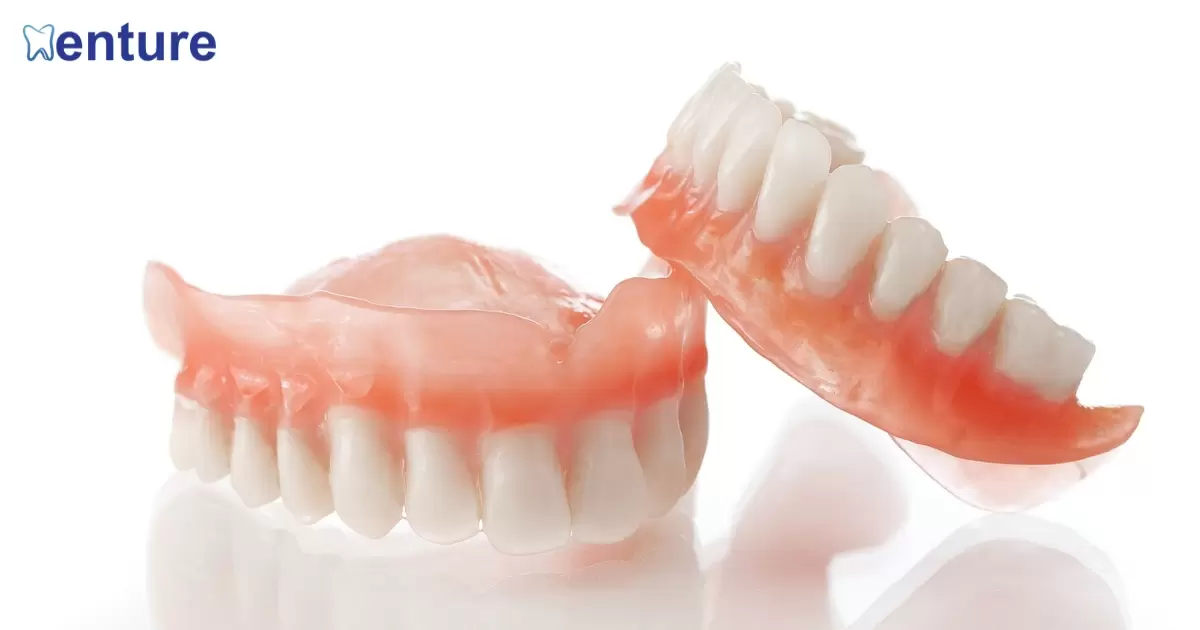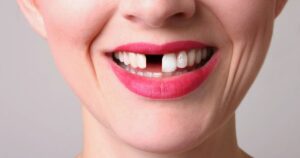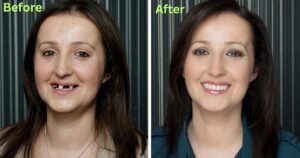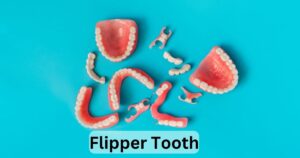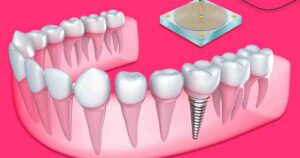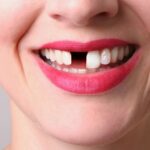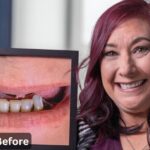A soft liner for dentures is a pliable, cushioning material that looks like a thin, flexible layer typically made of silicone or similar soft materials. It is custom-fitted to the inner surface of dentures, providing comfort and reducing irritation.
Have you ever wondered, what does a soft liner for dentures look like? Imagine a snug, gentle layer snugly embracing the inside of your dentures, akin to a cozy cushion hugging your favorite chair. It’s like a pliable, translucent shield made of soft, silicone like material, seamlessly blending with the natural shades of your gums.
Now that you know what a soft liner for dentures looks like, why not consider if it could enhance your denture-wearing experience. If you’ve been struggling with discomfort or irritation, it might be time to explore this option.
| Aspect | Description |
| What Does a Soft Liner Look Like? | A soft liner for dentures is a pliable, cushioning material made of soft silicone or similar materials, custom-fitted to the inner surface of dentures for comfort and reduced irritation. |
| What Are Soft Liners for Dentures? | Soft liners are custom-fitted materials made of silicone or similar soft materials for the inner surface of dentures, providing comfort and reducing friction. They are crucial for improving the fit and feel of dentures. |
| Type of Denture Liners | Denture liners come in various types, including soft liners, hard liners, and temporary liners. Each type serves specific purposes, improving comfort, durability, or providing quick fixes. |
| Soft Denture Liners | Soft denture liners are made of pliable materials like silicone, offering a cushioning effect that reduces pressure points and discomfort, especially for individuals with sensitive oral tissues. |
| Hard Denture Liners | Hard denture liners are made from rigid materials, providing lasting stability and reinforcement to the denture base. They are suitable for individuals with extensive bone resorption or those needing long-term solutions. |
| Temporary Denture Liners | Temporary denture liners serve as short-term solutions for discomfort and sore spots, not intended for long-term use. They provide quick relief by cushioning pressure points and improving comfort. |
| Cushion Denture Liners | Cushion denture liners are specialized liners with a soft, pliable material that adds a cushioned layer to the denture base, reducing pressure points and discomfort, making dentures more pleasant to wear. |
| The Right Liner For The Right Patient | Selecting the appropriate denture liner is essential for ensuring comfort and satisfaction. Dental professionals match the right liner to the patient’s unique needs, considering factors such as oral tissue sensitivity and usage requirements. |
| Denture Liner Adhesion | Denture liner adhesion is crucial for comfort and effectiveness. It determines how well the liner stays in place, reducing movement and discomfort during everyday activities. |
| Cleaning Soft Tissue Liners | Cleaning soft tissue liners is essential for maintaining oral hygiene. A soft-bristle brush, warm water, and mild, non-abrasive denture cleansers are recommended for cleaning. Harsh chemicals and abrasive materials should be avoided. |
| How To Clean Your Dentures, Partial Dentures & Soft Liners | Proper cleaning routines for dentures, partial dentures, and soft liners include rinsing after meals, using a soft-bristle brush and appropriate denture cleaner, soaking overnight, and regular dental check-ups. |
What Are Soft Liners for Dentures?
Soft liners for dentures are innovative materials that bring comfort and relief to denture wearers. These pliable, cushioning linings are custom-fitted to the inner surface of dentures, providing a gentle and snug connection with the gums.
They are typically made of silicone or similar soft materials, offering a soft and flexible barrier that reduces friction and irritation. Soft liners play a crucial role in improving the fit and feel of dentures, making them a popular choice for individuals with sensitive oral tissues or those seeking enhanced denture stability and comfort.
Denture Liners the Deep Dive
Denture liners are a crucial element in the world of denture care, offering wearers improved comfort and fit. In this comprehensive exploration, we’ll delve into various aspects of denture liners, including types, benefits, and maintenance.
Whether you’re new to dentures or seeking ways to enhance your denture-wearing experience, this deep dive will provide you with valuable insights to make informed decisions and ensure your smile stays confident and comfortable. Stay tuned for a closer look at the world of denture liners.
Type of Denture Liners
Denture liners come in various types, each offering specific benefits to denture wearers. These liners can improve comfort, fit, and stability. They are typically categorized into soft liners, hard liners, and temporary liners.
Soft liners are made of pliable materials like silicone and provide a cushioning effect, reducing irritation and offering comfort. Hard liners, on the other hand, are rigid and durable, ideal for long-term use and increased support.
Soft Denture Liners
Soft denture liners are a vital component for denture wearers seeking enhanced comfort and reduced irritation. Constructed from pliable materials such as silicone, they serve as a cushioning layer between the denture base and the gums.
This cushioning effect helps alleviate pressure points, making dentures more comfortable to wear, especially for individuals with sensitive oral tissues. Soft denture liners play a crucial role in improving the fit and feel of dentures, ensuring a snug and soothing experience throughout the day.
Hard Denture Liners
Hard denture liners are a valuable addition to dentures for those seeking enhanced durability and support. These liners are crafted from rigid materials that provide lasting stability and reinforcement to the denture base.
By ensuring a secure fit, hard denture liners are particularly beneficial for individuals with extensive bone resorption or those who require long-term denture solutions. While they offer durability, it’s essential to consult with a dentist to determine if hard denture liners are the right choice for your specific oral needs and to ensure proper application and adjustments.
Temporary Denture Liners
Temporary denture liners are short-term solutions that serve as quick fixes for denture wearers experiencing discomfort or sore spots. Dentists use these liners to make minor adjustments to the denture’s fit.
They are not intended for long-term use but are effective in providing immediate relief by cushioning pressure points and improving comfort. Temporary denture liners are particularly useful during the initial adjustment phase of new dentures or when minor modifications are needed to address changes in the mouth’s shape or gum tissue.
Cushion Denture Liners
Cushion denture liners are a specialized type of denture liner designed to enhance comfort for denture wearers. They consist of a soft, pliable material that adds a cushioned layer to the denture base.
Padding helps reduce pressure points and discomfort while wearing dentures, particularly for individuals with sensitive oral tissues or those prone to sore spots. Cushion denture liners can significantly improve the overall denture-wearing experience, making it more pleasant and less irritating for the wearer.
The Right Liner For The Right Patient
Selecting the right denture liner for a patient is a crucial aspect of ensuring comfort and satisfaction with their dentures. Dentists carefully evaluate individual needs, taking into account factors such as oral tissue sensitivity, long-term usage, and the need for quick adjustments.
By matching the appropriate type of liner to the patient’s specific requirements, dental professionals can significantly enhance the overall denture-wearing experience. This personalized approach ensures that patients receive the most comfortable and effective solution for their unique circumstances.
Denture Liner Adhesion
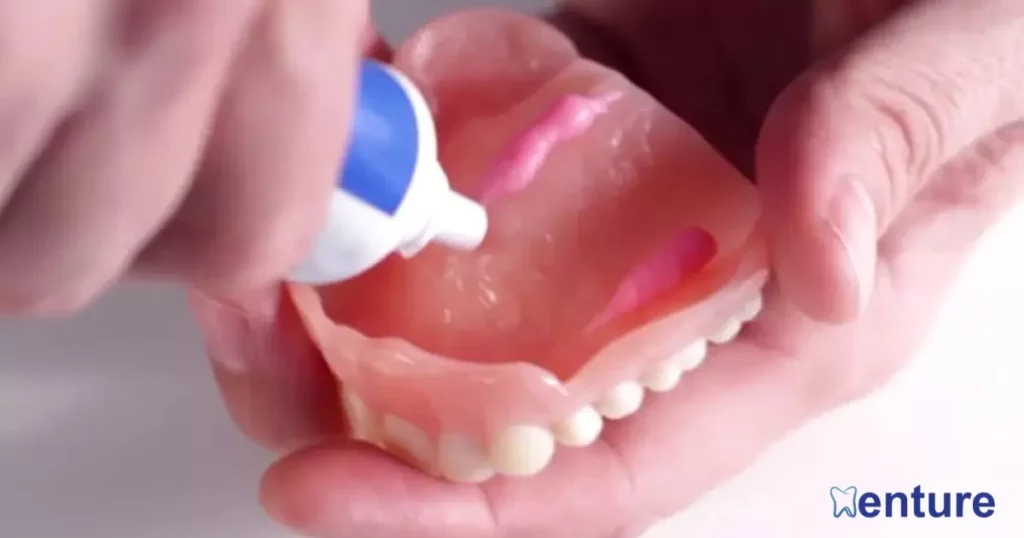
Denture liner adhesion plays a crucial role in the comfort and effectiveness of dentures. It refers to how well the liner material adheres to the denture base and the oral tissues. Proper adhesion ensures that the liner stays securely in place, reducing the risk of movement and discomfort during everyday activities like eating and speaking.
Cleaning Soft Tissue Liners
Cleaning soft tissue liners is essential to maintain good oral hygiene and extend the lifespan of your dentures. Soft tissue liners can accumulate plaque, food particles, and bacteria, leading to odors and potential oral health issues.
To clean them, it’s recommended to use a soft-bristle brush or cloth, warm water, and mild, non-abrasive denture cleansers. Avoid abrasive materials or harsh chemicals, as they can damage the soft liner.
How To Clean Your Dentures, Partial Dentures & Soft Liners
Properly cleaning your dentures, partial dentures, and soft liners is crucial for maintaining oral hygiene and ensuring the longevity of these dental appliances. Regular cleaning routines involve rinsing after meals, using a soft brush and appropriate denture cleaner, soaking them in a cleansing solution, and taking care to handle them gently.
Don’t forget to clean your gums and soft liners if applicable, and visit your dentist for regular check-ups. These steps are essential for keeping your dentures and oral health in excellent condition, providing you with a comfortable and confident smile.
Rinse After Eating
Rinsing your dentures after eating is a simple but crucial step in maintaining their cleanliness and comfort. After meals, remove your dentures and rinse them under running water. This action helps to remove loose food particles, preventing them from adhering to your dentures and potentially causing discomfort or odor.
Use A Soft-Bristle Brush
Using a soft-bristle brush is crucial for the proper care of dentures, as it helps prevent damage and scratching. When cleaning dentures, partial dentures, or soft liners, opt for a brush designed specifically for this purpose.
Soft bristles are gentle on the denture materials and won’t cause abrasion, which can lead to wear and tear. Always avoid using regular toothbrushes with hard bristles or abrasive toothpaste, as these can harm the denture’s surface and appearance.
Soak Overnight
Soaking overnight is a crucial step in denture care and maintenance. It involves placing your dentures in a denture cleaning solution or a mixture of water and a denture tablet for an extended period, typically overnight.
This process serves several purposes: it helps to remove stains, disinfect the dentures, and prevent the growth of harmful bacteria. Following the product’s instructions for the specific solution you use is important to ensure effective and safe soaking.
Brush Your Gums And Soft Liners
Brushing your gums and soft liners is an important part of denture care. Gently brushing your gums with a soft toothbrush helps remove plaque and stimulates blood circulation, which is beneficial for your oral health.
If you have soft liners on your dentures, it’s equally essential to clean them with a soft brush. Soft liners can trap debris and bacteria, so regular brushing helps maintain hygiene and keeps your dentures and oral tissues in optimal condition.
Handle With Care
Handle with Care is a fundamental rule when it comes to maintaining your dentures and ensuring their longevity. Dentures are delicate, so it’s essential to treat them gently to prevent breakage or damage.
When cleaning, brushing, or handling your dentures, do so over a soft surface or a basin of water to cushion any accidental drops. Avoid using excessive force or hard materials that can scratch or harm the denture’s surface.
FAQ’s
Does a soft liner make dentures fit better?
Because soft liners can significantly improve the fit of a denture, they allow wearers to chew easily and have few, if any, dietary restrictions.
How long do soft liners last in dentures?
How Often Should Dentures Get Relined? The answer to this depends on the type of reline that you choose. A soft denture reline lasts between one to two years, and a hard reline can last up to four years.
How much does a soft reline cost?
The average cost usually depends on the type of reline you get. A hard reline will cost between $350 and $900, while a soft reline will cost between $200 and $500.
Conclusion
Maintaining your dentures, partial dentures, and soft liners is vital for your oral health and comfort. Regular cleaning and gentle handling are key to preventing damage and ensuring they stay in excellent condition.
Rinsing your dentures, using a soft brush, and soaking them overnight are essential routines. Don’t forget to care for your gums and soft liners, too, to maintain a healthy mouth. And above all, handle your dentures with care to prevent any accidents that could lead to costly repairs.
